Apple Cider Vinegar Toner: Benefits, Recipes, And How To Use
An ACV toner a day keeps many skin issues away- from breakouts to hyperpigmentation.

Image: Shutterstock
Apple cider vinegar toner is a wonderful skin care product praised throughout history, but its benefits for skin and beauty have become even more popular now. You may consider ACV a flavorsome salad dressing, but did you know that apple cider vinegar toner is a natural toner with innumerable advantages? The benefits of ACV toner involve relaxing and soothing the skin. Are you curious to find out how it does that? Read on to learn the benefits of apple cider vinegar toner, how to prepare it, and much more. Keep scrolling!
In This Article
Benefits Of Using Apple Cider Vinegar Toner
Although there is no scientific proof to support the skin benefits of ACV, most people use it for the following benefits:
1. Maintains Optimal Skin pH
ACV toner maintains the skin’s pH level, which is crucial to preserving the natural skin microbiome and optimal skin function.
2. May Reduce Hyperpigmentation
contains malic, citric, lactic, and acetic acids (1). All these AHAs may help reduce pigmentation, dark spots, and patches to brighten the skin.
3. May Soothe Acne Inflammation
Apple cider vinegar is effective against S.aureus bacteria, which cause multiple skin issues, including acne (2). Therefore, many skin experts recommend using apple cider vinegar for acne prevention and treatment. Moreover, the natural AHAs in apple cider vinegar may have some effect in calming and soothing the inflammation, pain, and discomfort associated with acne.
A study published in 2022 showed that 74.41% of 1571 patients used complementary and alternative medicine (CAM), notably lemon juice (66.37%) and apple cider vinegar as the second most common method for acne. CAM use was higher in women, people with severe acne vulgaris cases, and non-smokers. Most of them applied CAM before consulting a physician (43.94%) for 0–2 weeks (38.97%).
 Pro Tip
Pro Tip4. May Minimize Excess Sebum
Apple cider vinegar has astringent properties that may help minimize excess oil production and reduce greasiness and shine.
These are the reasons many people swear by apple cider vinegar for skin. We have shared some easy ACV toner recipes you can easily prepare at home in the next section.
Key Takeaways
- Apple cider vinegar (ACV) is a rich source of alpha-hydroxy acids, which help reduce dark spots and soothe inflammation and acne symptoms.
- ACV can also dry out excess oil and make skin look less greasy.
- You can make an apple cider vinegar toner at home by mixing it with green tea, rose water, witch hazel, or a few other ingredients.
- However, ACV may not suit sensitive skin. Hence, doing a patch test is advisable.
How To Make ACV Toner: 6 Recipes
1. Apple Cider Vinegar Toner
This toner can keep your skin hydrated and feeling refreshed throughout the day.
You Will Need
- ½ cup of apple cider vinegar
- ½ cup of distilled water
- A spray bottle
How To Prepare
- Add water and apple cider vinegar in a spray bottle and mix well.
- Use twice a day after washing your face.
2. Apple Cider Vinegar And Green Tea Toner
Green tea has anti-inflammatory properties and can help minimize UV damage (3). It makes an ideal face toner for the skin. It can soothe irritation and redness.
You Will Need
- 1 cup of ACV
- 2 cups of water
- 2 green tea bags
How To Prepare
- Boil tea bags in water and let it cool down.
- Mix it with the apple cider vinegar and store it in a glass bottle.
- Refrigerate and use every day after washing the face.
 Quick Tip
Quick Tip3. Apple Cider Vinegar And Rose Water Toner
Rose petals have anti-inflammatory properties (4). Rose water can help alleviate acne-related inflammation and irritation.
You Will Need
- 30 mL of rose water
- 5 mL of apple cider vinegar
How To Prepare
- Mix the rose water and apple cider vinegar in a spray bottle and shake well.
- Apply the toner to your cleansed skin with a cotton pad and let it dry.
- Follow up with a moisturizer.
- Use twice daily.
4. Apple Cider Vinegar And Witch Hazel Toner
Witch hazel has astringent and antiseptic properties that help minimize acne (5).
You Will Need
- ½ cup of apple cider vinegar
- ¼ cup of witch hazel
- 1 cup of distilled water
- 5 drops of any essential oil
How To Prepare
- Mix all the ingredients in a spray bottle and shake well.
- Apply the toner to your cleansed skin with a cotton pad and let it dry.
- Follow up with a moisturizer.
- Use it twice daily.
5. Apple Cider Vinegar and Lemon Toner
Lemon is a common ingredient in traditional home remedies to brighten the skin and reduce oiliness. This face mask can help even out your skin tone. However, lemon extracts can make your skin photosensitive. So, use sunscreen when you step out.
You Will Need
- ½ cup of distilled water
- 1/3 cup of apple cider vinegar
- ½ teaspoon of lemon juice
How To prepare
- Pour all the ingredients into a bottle and mix.
- Apply the toner to your cleansed face with a cotton ball.
- Follow up with a moisturizer.
- Store it in the refrigerator and use it twice daily.
6. Apple Cider Vinegar and Tea Tree Toner
Tea tree oil has antimicrobial properties and can help minimize acne (6). This toner can calm irritation, soothe the skin, and minimize acne lesions.
You Will Need
- 1 cup of apple cider vinegar
- 1 cup of water
- 5 drops of tea tree oil
How To Prepare
- Mix all the ingredients in a spray bottle and shake well.
- Apply the toner to your cleansed skin with a cotton pad and let it dry.
- Apply moisturizer.
- Use it twice daily
In the next sections, we have answered some of the common queries regarding ACV toner. Keep reading.
Is ACV Toner Suitable For All Skin Types?
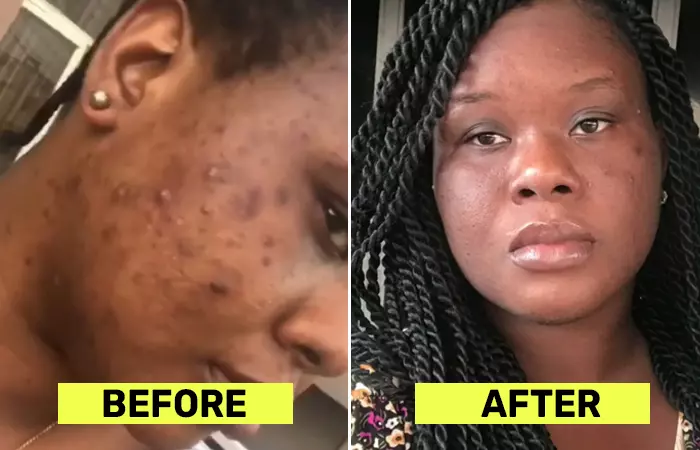
Yes, apple cider vinegar is suitable for all skin types, except sensitive skin and if you are not allergic to it. Do a patch test to prevent any adverse effects.
Are There Any Side Effects Of Using ACV?
If you are allergic to it and if you use undiluted ACV, it may cause:
- Irritation
- Redness
- Itching
- Hives
Apple cider vinegar is a widely used home remedy for relaxing and calming the skin, and it is popular for a variety of reasons. It balances and restores your skin’s natural pH to enhance your overall complexion. It is best for treating the signs and symptoms of oily and acne-prone skin. You can try any ACV toner recipes we suggested in the article if you wish to switch to a natural and DIY toner. While, regular white vinegar may also be used as ACV but it is more acidic in nature. Make sure to conduct a patch test with ACV to avoid any adverse reactions. Also, rinse it off with water after about 10 minutes to avoid any reactions due to long term contact.
Frequently Asked Questions
Can I leave apple cider vinegar toner on my face overnight?
Yes, but it is not recommended. It is preferable to leave apple cider vinegar toner on for 5-10 minutes on sensitive skin or 15-30 minutes on normal skin before washing it with cold water. Follow with a moisturizer.
Can I apply apple cider vinegar directly to my face?
No, it is not recommended to apply apple cider vinegar directly to the skin as it may completely dry out the skin. However, a diluted solution of ACV and water can be used to form a simple yet effective face cleanser.
Does apple cider vinegar toner need to be refrigerated?
There’s no need to keep it refrigerated. However, if you have leftover apple cider vinegar toner, store it at room temperature until you need it again.
How often should I use apple cider vinegar toner?
The frequency of using an apple cider vinegar toner depends on your skin’s sensitivity and tolerance. Typically, start with using it 2-3 times a week and observe how your skin responds. For those with more sensitive skin, reducing the frequency or further diluting the solution could be beneficial. Diluting ACV with water in a 1:3 ratio helps mitigate its potency and minimizes the risk of irritation. Gradually, you can adjust the frequency based on how your skin reacts. While some individuals might find using it every other day works for them, while others might see optimal results using it a few times a week.
An ACV toner can be pivotal in your skincare journey. It has transformative benefits for achieving healthy, glowing, and clear skin. Watch this video to see how to incorporate this DIY toner into your routine and reap its benefits!
References
Articles on StyleCraze are backed by verified information from peer-reviewed and academic research papers, reputed organizations, research institutions, and medical associations to ensure accuracy and relevance. Read our editorial policy to learn more.
- Nutrients and bioactive components from vinegar: A fermented and functional food
https://www.sciencedirect.com/science/article/pii/S175646461930605X - Antimicrobial activity of apple cider vinegar against Escherichia coli, Staphylococcus aureus and Candida albicans; downregulating cytokine and microbial protein expression
https://pubmed.ncbi.nlm.nih.gov/29379012/ - Skin anti‐inflammatory activity of rose petal extract (Rosa gallica) through reduction of MAPK signaling pathway
https://www.ncbi.nlm.nih.gov/pmc/articles/PMC6261181/ - Antioxidant and potential anti-inflammatory activity of extracts and formulations of white tea, rose, and witch hazel on primary human dermal fibroblast cells
https://www.ncbi.nlm.nih.gov/labs/pmc/articles/PMC3214789/ - A review of applications of tea tree oil in dermatology
https://pubmed.ncbi.nlm.nih.gov/22998411/
Read full bio of Dr. Sameeksha Chand
Read full bio of Monomita Chakraborty
Read full bio of Eshna Das
Read full bio of Swathi E








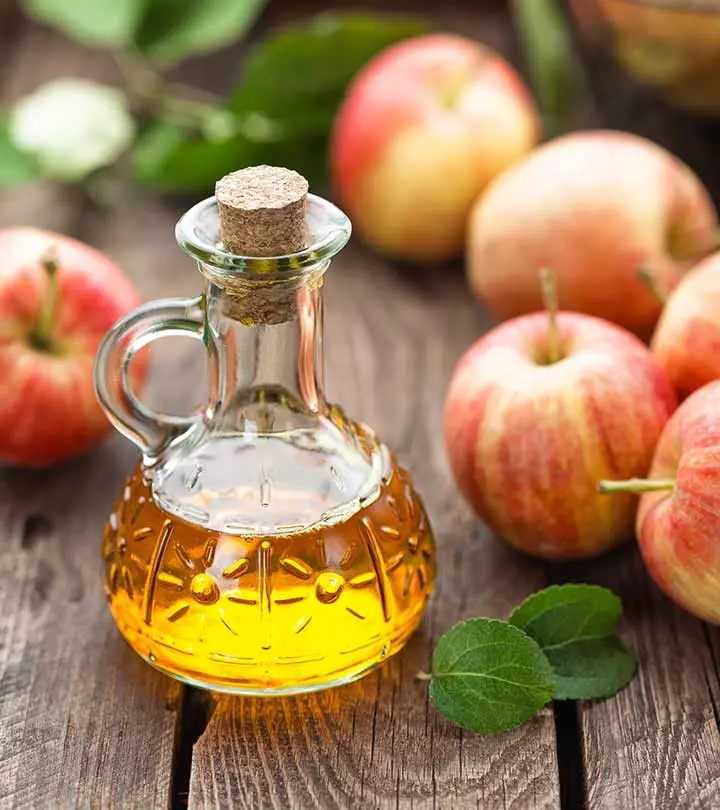
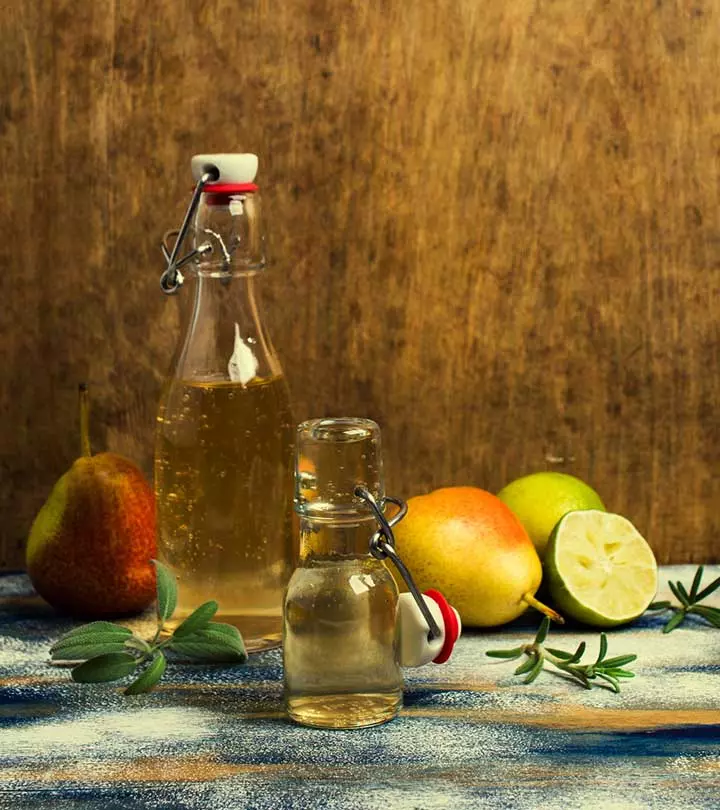
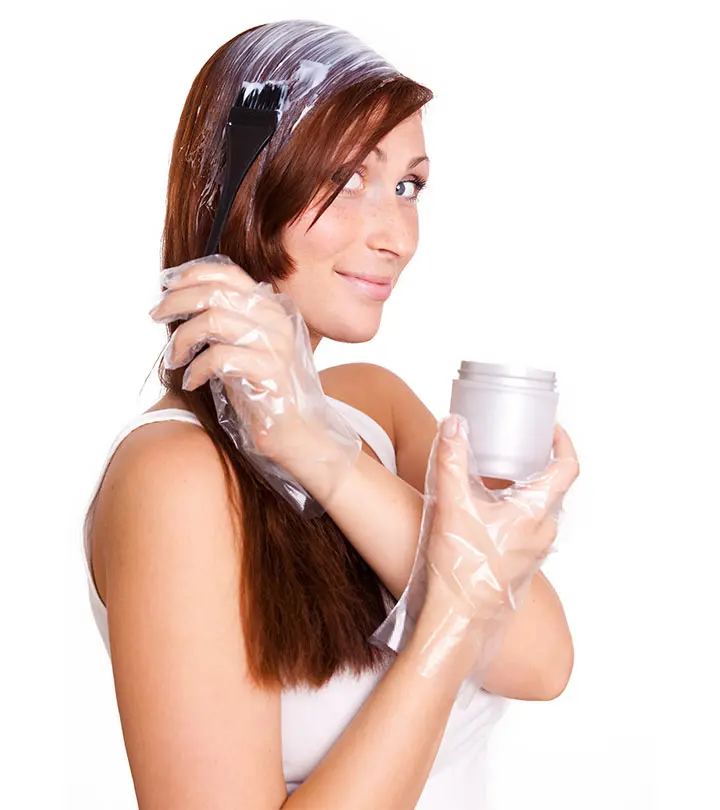




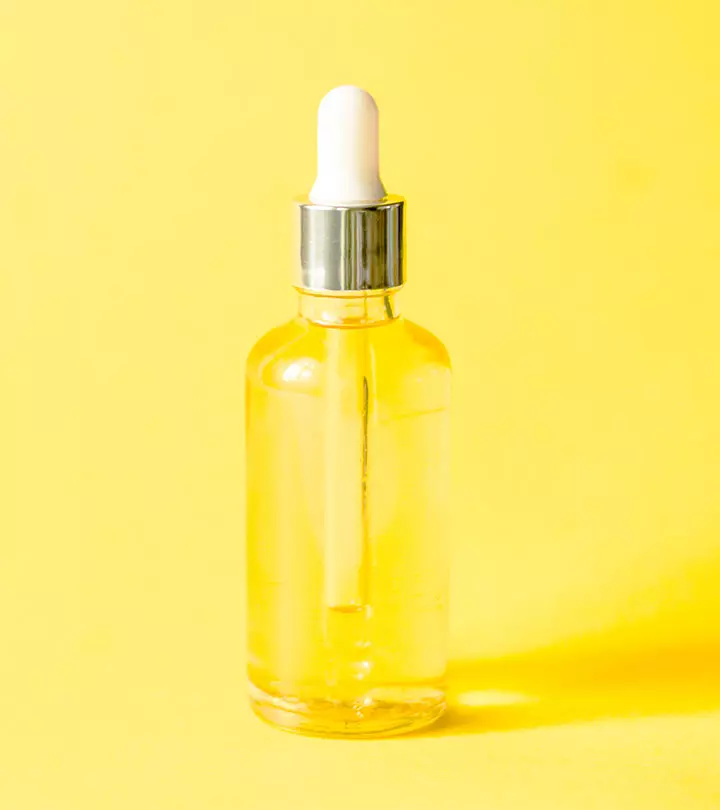

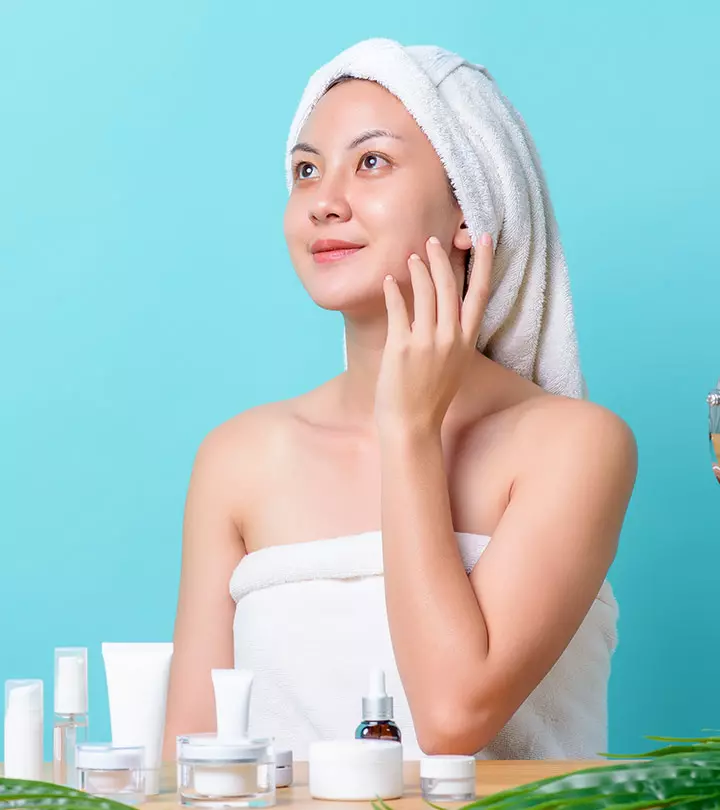


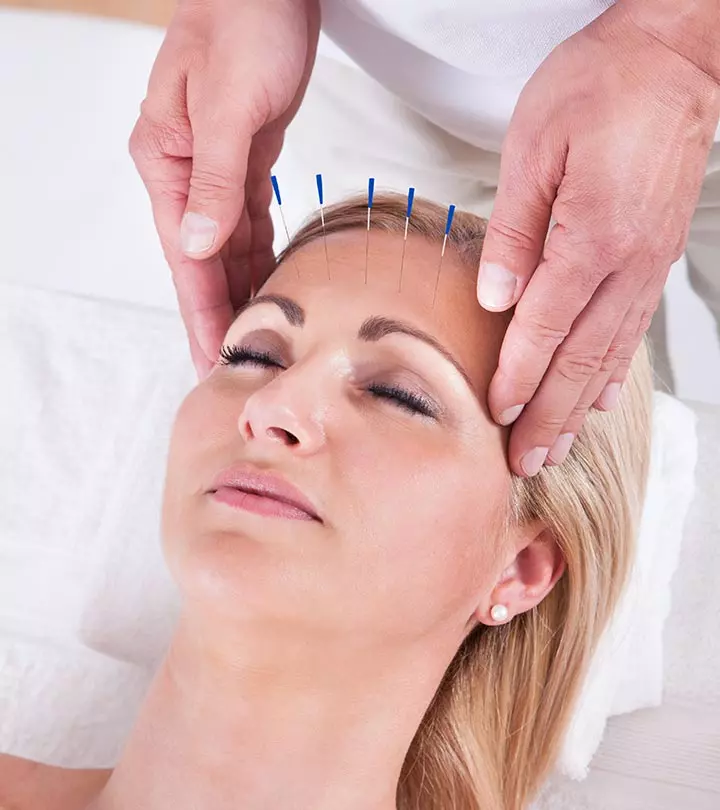



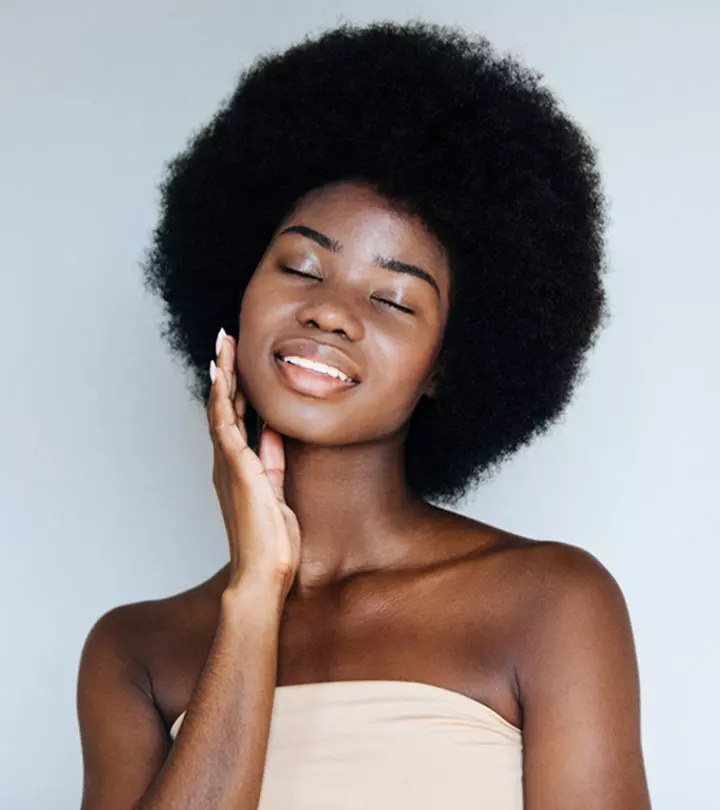
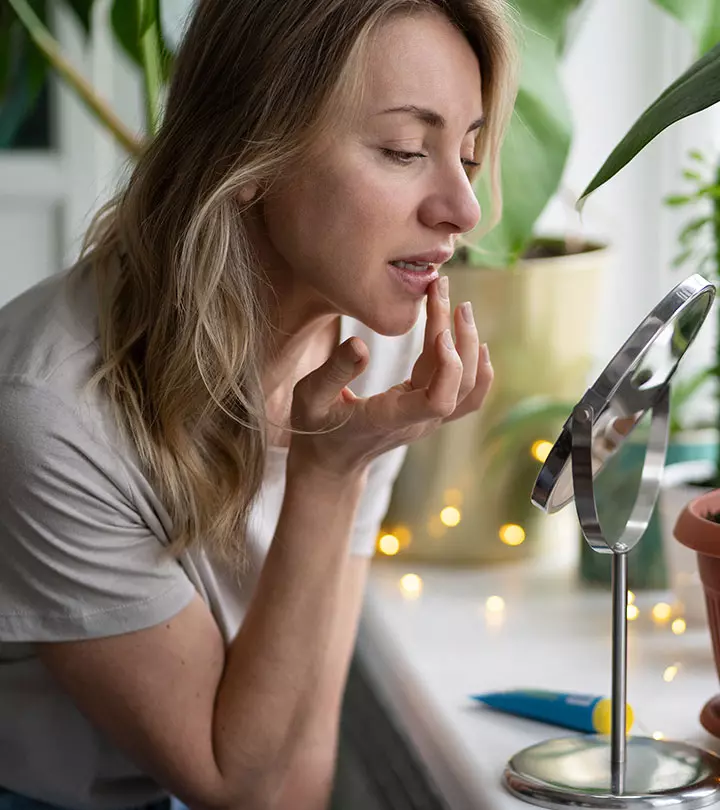
Community Experiences
Join the conversation and become a part of our empowering community! Share your stories, experiences, and insights to connect with other beauty, lifestyle, and health enthusiasts.